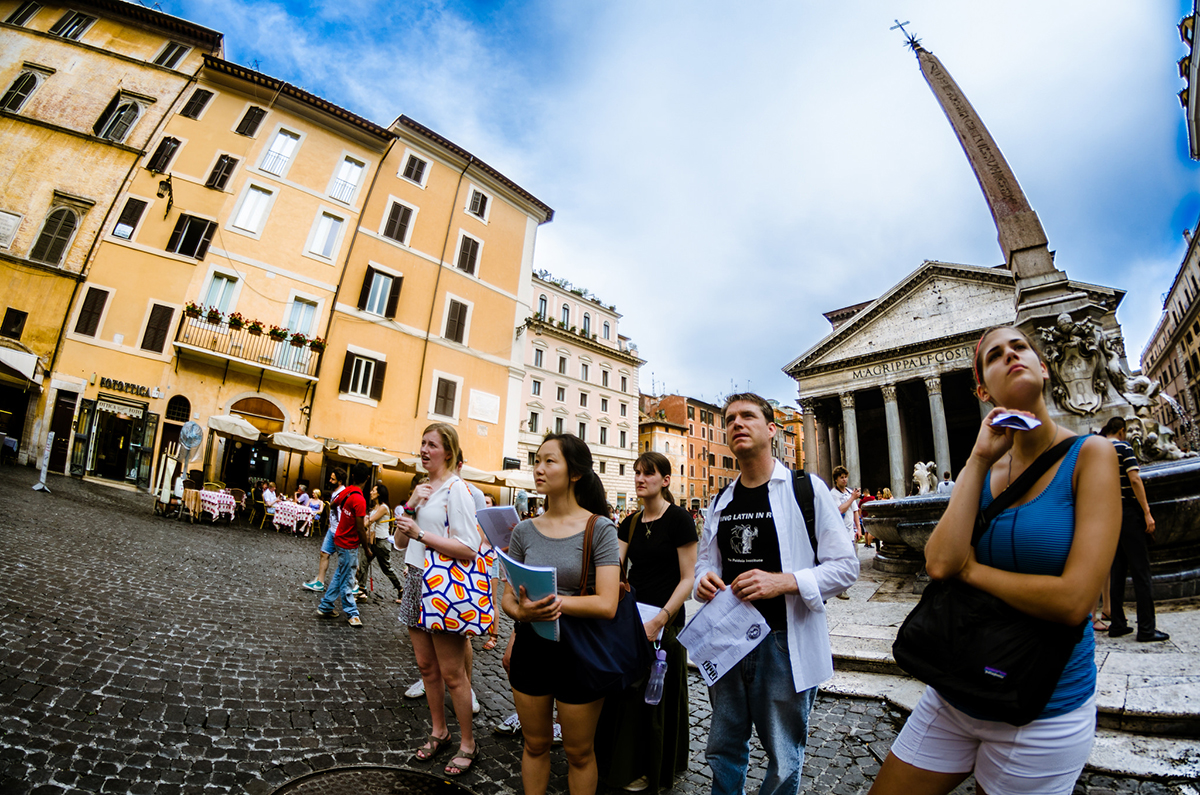Renowned Vatican Latinist joins classics faculty
By Kathy Hovis

After eight years at the Vatican translating the pope’s messages – sermons, letters, even tweets – into Latin, Daniel Gallagher is bringing his expertise to Cornell. He joins the classics faculty this summer as the Ralph and Jeanne Kanders Associate Professor of the Practice in Latin.
Gallagher’s prowess in spoken Latin will help the classics department meet rising demand from students who want to speak, not just read, Latin. His appointment will allow the department to add a three-credit class on conversational Latin, and he will also teach courses in intermediate and advanced Latin for undergraduates and graduate students.
“I had the unique experience of writing (and speaking) Latin day and night for a decade,” Gallagher said. “There are not many places in the world where your job is to compose Latin documents from scratch, but the Vatican is one of them.” (Latin is the official language of the Catholic Church.)
“We want to be the place where students go if they want to learn Latin,” said Michael Fontaine, associate professor of classics and a strong advocate for spoken Latin, which he says increases speed, accuracy and confidence for students as they read Latin texts.
When Cornell faculty and administrators learned of Gallagher’s decision to leave the Vatican, they acted quickly to hire him, said Hunter Rawlings, Cornell interim president and professor of classics.
Fontaine taught with Gallagher at the Paideia Institute, a nonprofit organization with offices in Brooklyn and Rome, which offers summer intensive courses in spoken Latin.
“Almost all of my teaching experience has been with college-age students,” Gallagher said. “They’re at the point in life when a fundamental decision has to be made either to broaden one’s cultural and intellectual horizons or to narrow one’s desires and concerns to making money and having time for Facebook and YouTube (although I have nothing against either).”
Rawlings said when he was a student, “we learned Latin by sitting down with textbooks and memorizing, memorizing all of the forms you have to learn. Many students find that impossibly boring and tedious. But when you learn to speak it – as I never did – it’s a living language, and many students turn on to it. There’s now a movement.”
That movement is evident in U.S. high schools, Rawlings said, where more students are signing up for classes and more teachers are interested in programs like those at the Paideia Institute, where they can learn to teach spoken Latin.
As an instructor at Paideia, Gallagher “showed us around his workplace, the Vatican, where we met his colleagues and Latin secretaries, all of whom work for the pope,” said Scott Rodeo ’18, a classics major. “They conversed with each other in perfectly fluent ecclesiastical Latin the entire time. In such a context, it was impossible not to sense the extraordinary significance of the language.”
Gallagher said he’s excited to start the new position and to share his love of the language.
“The ability to manipulate the language – that is, to say what we want to say using the same vocabulary and style of the text we are reading – leads not only to proficiency in reading, but also to feeling the feelings of the author or of the characters,” he said. “Otherwise, we get bogged down in parsing, declining, conjugating or whatever else distracts us from the thoughts and feelings contained in the text.”
Sturt Manning, chair of the classics department, said: “Latin language is a strong basis for all sorts of other studies beyond classics, and a great intellectual training. Latin is not just from Roman times; there is a wealth of Medieval and later Latin. It is also for scientists and philosophers who, for example, might want to learn to read Newton’s ‘Philosophiae Naturalis Principia Mathematica’ in the original.”
Rawlings noted that members of the Kanders family, including the late Ralph Kanders ’42, have been strong supporters of the College of Arts and Sciences throughout the years and were eager to support this new position.
“My father always believed that a liberal arts education provided a firm foundation for your life,” said Alan Kanders ’87, adding that Ralph Kanders took a broad range of classes in Arts and Sciences, including many in classics, and two of Ralph’s children majored in classical civilization. “He believed that studying classical languages helped him think in a very analytical way.”
The Kanders family also provides funding for students to travel to Rome and Greece for language study.
Kathy Hovis is a writer for the College of Arts and Sciences.
Media Contact
Get Cornell news delivered right to your inbox.
Subscribe